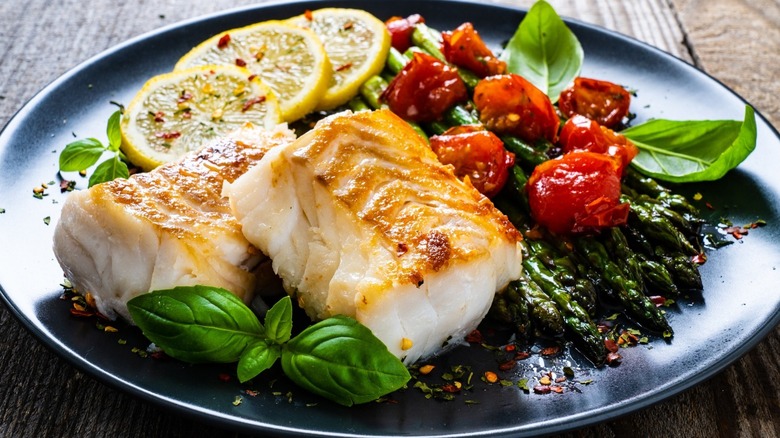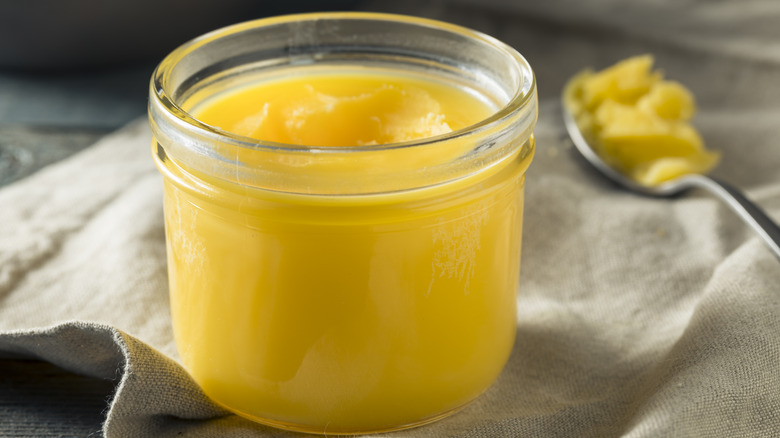This Might Be The Best Fat For Cooking Fish
Although intimidating to cook, fish is among the healthiest foods we can consume. According to Healthline, fish is loaded with high-quality protein, vitamins, and minerals, like vitamin D – which most people are deficient in — and omega-3 fatty acids, a compound the human body can't produce on its own. Fattier fish like salmon, trout, mackerel, sardines, and tuna have shown to be even more beneficial than white fish.
One to two servings of fish are recommended each week, and researchers found a 15% decrease in the risk of heart disease in men who ate at least one serving of fish a week. There is also a link to slowing the decline of brain function and evidence to suggest a diet containing fish can help you sleep better, protect your vision as you age, and reduce the risk of autoimmune diseases like arthritis.
Like any protein, there are many ways to cook fish. Popular methods include frying, poaching, roasting, grilling, and pan searing. The type of fish and its size determines the best cooking method, but pan searing or sautéing is always an option that works well with fillets with or without the skin on. Achieving a golden crust requires a few techniques and the proper fat to cook the fish in — here is one fat that is known to deliver the crispiest fish.
Ghee
Eric Ripert: chef, and owner of "Le Bernadin," suggests drying fillets with a paper towel and seasoning the fish just before cooking, since salt draws out moisture, the enemy of a golden brown crust (via Wall Street Journal). A dry surface and hot temperatures are required to create the Maillard Reaction, the chemical process responsible for the color and depth of flavor we want when searing.
When working with a thick fillet, Thomas Keller of "The French Laundry" uses the blade of a chef knife to gently scrape the surface of the fish, drawing out additional moisture before using a paper towel (via Serious Eats). While some chefs use butter for cooking the fish, Ripert avoids it since butter contains up to 18% water, and moisture in the pan would steam the fish instead of browning it.
To get the flavor without the moisture, chef Steve Hodges says it's "gotta be ghee." Hodges avoids oil since it can make fish greasy; instead, he reaches for the ancient fat used for centuries in Indian cooking with a high smoking point, ideal for searing and frying. Ghee begins as unsalted butter, which is heated until the water is evaporated and the milk solids are strained, becoming a shelf-stable fat that has a depth of flavor and can withstand high cooking temperatures for long durations.

